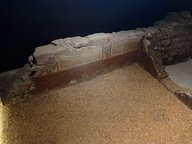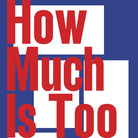ARTISTI




Arturo Martini
OPERE

La Hofkirche di Dresda con il castello e il ponte di Augusto (Dresda dalla riva sinistra dell'Elba)
Pinacoteca Giovanni e Marella AgnelliLUOGHI

Le domus del I-II secolo
Aquileia
-
Notizie
-
Milano | 02/04/2025
Dorothea Lange in arrivo a Milano
-
Milano | 02/04/2025
Il Novecento e gli Etruschi, un racconto da scoprire alla Fondazione Rovati
-
A Mantova fino al 29 giugno
"> Mantova | 01/04/2025 Dal caos al cosmo, una grande mostra per il cinquecentenario di Palazzo Te
LEGGI TUTTO >
-
Milano | 02/04/2025
Dorothea Lange in arrivo a Milano
-
Mostre
- Dal 27/03/2025 al 27/07/2025 Milano | Pirelli HangarBicocca Yukinori Yanagi. Icarus
- Dal 27/03/2025 al 20/07/2025 Firenze | Villa Bardini Caravaggio e il Novecento. Roberto Longhi, Anna Banti
- Dal 22/03/2025 al 08/06/2025 Venezia | Ca’ Pesaro – Galleria Internazionale d’Arte Moderna Raoul Schultz. Opere 1953-1970
LEGGI TUTTO >
-
Guide
- Roma | Opera Oratorio Santa Silvia
- Bologna | Opera Portale romanico
- Roma | Opera Oratorio Santa Barbara
- Bologna | Opera Battesimo di Cristo
LEGGI TUTTO >
-
Info
ARTE.it è una testata giornalistica online iscritta al Registro della Stampa presso il Tribunale di Roma al n. 292/2012 | Direttore Responsabile Luca Muscarà | © 2025 ARTE.it | Tutti i diritti sono riservati

